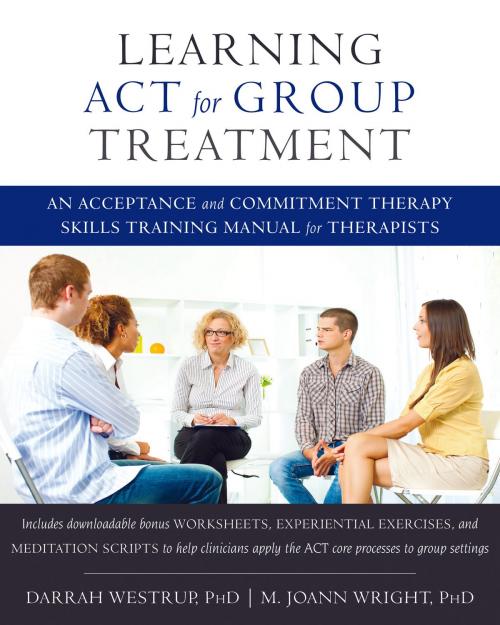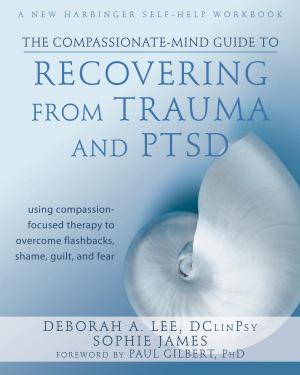Learning ACT for Group Treatment
An Acceptance and Commitment Therapy Skills Training Manual for Therapists
Nonfiction, Health & Well Being, Medical, Specialties, Psychiatry, Psychology, Psychotherapy, Cognitive Psychology| Author: | Darrah Westrup, PhD, M. Joann Wright, PhD | ISBN: | 9781608824014 |
| Publisher: | New Harbinger Publications | Publication: | June 1, 2017 |
| Imprint: | Context Press | Language: | English |
| Author: | Darrah Westrup, PhD, M. Joann Wright, PhD |
| ISBN: | 9781608824014 |
| Publisher: | New Harbinger Publications |
| Publication: | June 1, 2017 |
| Imprint: | Context Press |
| Language: | English |
For many clients, group therapy is a more practical treatment option than one-on-one therapy sessions. The financial cost of group therapy is substantially less than individual therapy, and research shows it can be just as effective. However, group therapy also presents unique challenges, and is often more difficult to administer. That’s why professionals need a solid plan of action when using group therapy to treat clients.
In recent years, acceptance and commitment therapy (ACT) has gained immense popularity. Based in values, mindfulness, and committed action, this therapeutic model has proven successful in treating a number of psychiatric disorders, including anxiety, depression, stress, addictions, eating disorders, trauma, and relationship problems. However, despite the popularity of this modality, there are very limited resources available when it comes to applying ACT in a group setting.
Learning ACT for Group Treatment is a comprehensive, powerful manual for clinicians, therapists, and counselors looking to implement ACT in group therapy with clients. A composite of stand-alone sessions, the book provides detailed explanations of each of the core ACT processes, printable worksheets, tips on group session formatting, and a wide range of activities that foster willingness, cooperation, and connection among participants.
In the book, professionals will see how the benefits of ACT can actually be enhanced in a group setting, particularly because there are more participants for ACT exercises. This leads to increased accountability among clients, and allows them to play both an active role and the role of the observer during treatment. The book also includes concrete tips for applying ACT to a number of treatment scenarios, including inpatient group therapy, partial hospitalization programs, outpatient programs, and community self-help groups.
With detailed exercises and group activities, this book has everything therapists need to start using ACT in group settings right away.
For many clients, group therapy is a more practical treatment option than one-on-one therapy sessions. The financial cost of group therapy is substantially less than individual therapy, and research shows it can be just as effective. However, group therapy also presents unique challenges, and is often more difficult to administer. That’s why professionals need a solid plan of action when using group therapy to treat clients.
In recent years, acceptance and commitment therapy (ACT) has gained immense popularity. Based in values, mindfulness, and committed action, this therapeutic model has proven successful in treating a number of psychiatric disorders, including anxiety, depression, stress, addictions, eating disorders, trauma, and relationship problems. However, despite the popularity of this modality, there are very limited resources available when it comes to applying ACT in a group setting.
Learning ACT for Group Treatment is a comprehensive, powerful manual for clinicians, therapists, and counselors looking to implement ACT in group therapy with clients. A composite of stand-alone sessions, the book provides detailed explanations of each of the core ACT processes, printable worksheets, tips on group session formatting, and a wide range of activities that foster willingness, cooperation, and connection among participants.
In the book, professionals will see how the benefits of ACT can actually be enhanced in a group setting, particularly because there are more participants for ACT exercises. This leads to increased accountability among clients, and allows them to play both an active role and the role of the observer during treatment. The book also includes concrete tips for applying ACT to a number of treatment scenarios, including inpatient group therapy, partial hospitalization programs, outpatient programs, and community self-help groups.
With detailed exercises and group activities, this book has everything therapists need to start using ACT in group settings right away.















